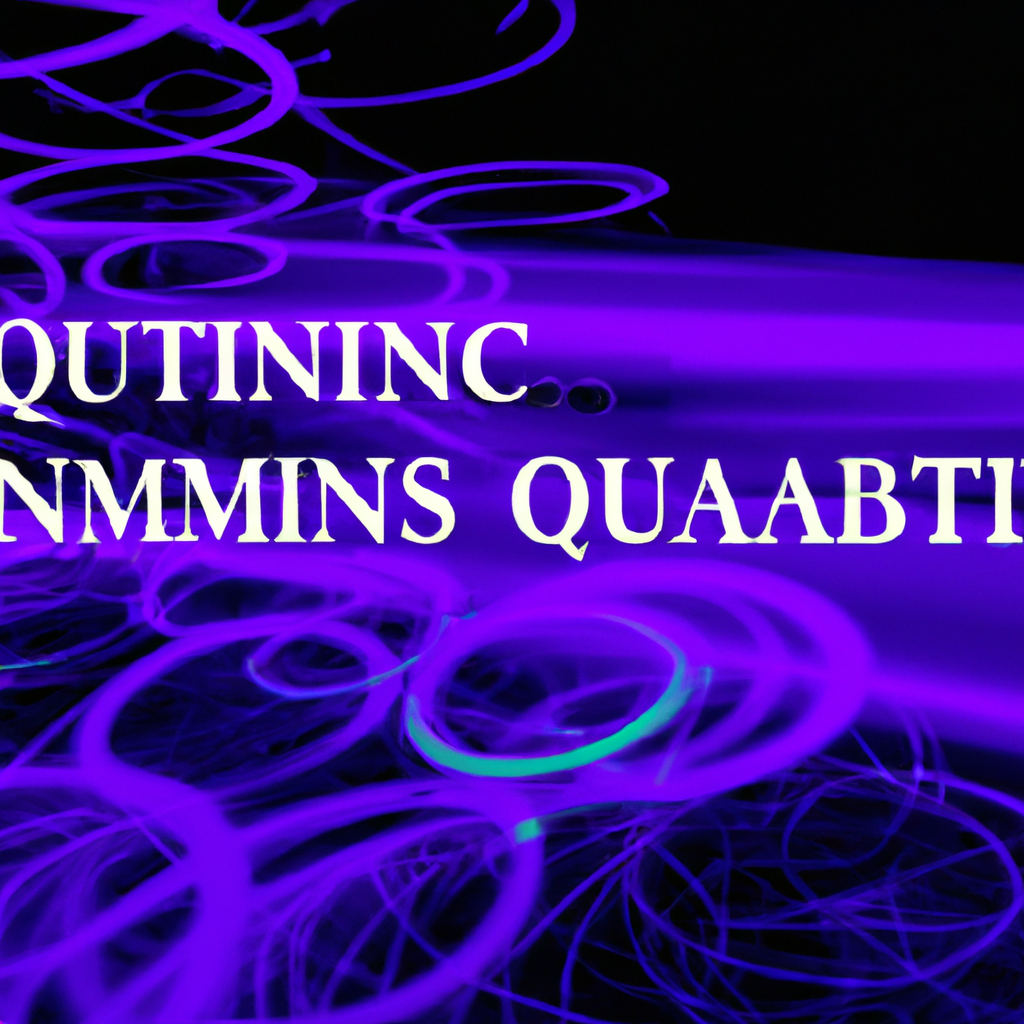Exploring the Advancements in Quantum Computing
Table of Contents
Exploring the Advancements in Quantum Computing
# Introduction
In recent years, the field of computing has witnessed remarkable advancements through the emergence of quantum computing. Quantum computing harnesses the fundamental principles of quantum mechanics to revolutionize traditional computing paradigms. This article aims to delve into the latest trends and advancements in quantum computing, while also highlighting the classic algorithms and concepts that form the foundation of this exciting field.
# Quantum Computing: A Paradigm Shift
Quantum computing represents a paradigm shift in the way we approach computational problems. Unlike classical computers that rely on binary digits or bits, quantum computers employ qubits, which can exist in multiple states simultaneously. This property, known as superposition, allows quantum computers to perform calculations in parallel, enabling them to solve certain problems exponentially faster than classical computers.
One of the most renowned algorithms in quantum computing is Shor’s algorithm, developed by Peter Shor in 1994. Shor’s algorithm is designed to factor large numbers efficiently, a task that poses a significant challenge for classical computers. By leveraging the principles of quantum superposition and entanglement, Shor’s algorithm can factorize large numbers exponentially faster than any known classical algorithm. This breakthrough has profound implications for cryptographic systems, as the security of many encryption methods relies on the difficulty of factoring large numbers.
# Quantum Computing Hardware
The advancement of quantum computing heavily relies on the development of robust and scalable hardware platforms. Various technologies are being explored to realize practical quantum computers, each with its own advantages and challenges.
One of the most promising approaches is based on superconducting qubits. Superconducting qubits are tiny circuits made of superconducting materials, such as aluminum, that exhibit quantum mechanical behavior. These qubits are manipulated using microwave pulses and cooled to extremely low temperatures to maintain their quantum state. Superconducting qubits have shown impressive progress in recent years, with notable achievements in the number of qubits and gate fidelity.
Another prominent technology in quantum computing is trapped ion qubits. Trapped ion qubits utilize individual ions trapped in electromagnetic fields to store and manipulate quantum information. The long coherence times and high fidelity of trapped ion qubits make them an attractive option for realizing large-scale quantum computers. However, scalability remains a challenge, as precise control of individual ions becomes increasingly difficult as the system size grows.
Topological qubits are another area of active research in quantum computing. Topological qubits rely on exotic particles called anyons, which possess nontrivial properties that can be manipulated to perform quantum computations. These qubits are highly resistant to noise and decoherence, making them an attractive option for fault-tolerant quantum computing. However, the experimental realization of topological qubits is still in its infancy, and significant technical challenges need to be overcome.
# Quantum Algorithms and Applications
While quantum computers are still in their early stages of development, researchers have already made significant progress in designing quantum algorithms for various applications.
Grover’s algorithm is a seminal quantum search algorithm that outperforms its classical counterparts. It can efficiently search unsorted databases, providing a quadratic speedup compared to classical algorithms. Grover’s algorithm has implications for a wide range of applications, including optimization, machine learning, and cryptography.
Simulating quantum systems is another area where quantum computers excel. Quantum simulators can accurately model the behavior of quantum systems, such as chemical reactions and material properties, which are inherently difficult to simulate on classical computers. This capability opens up new possibilities for drug discovery, materials design, and understanding complex physical phenomena.
Quantum machine learning is an emerging field that combines quantum computing with traditional machine learning techniques. By leveraging the unique properties of quantum systems, such as quantum superposition and entanglement, researchers hope to develop more powerful machine learning algorithms that can handle complex datasets more efficiently.
# Challenges and Future Outlook
Despite the promising advancements in quantum computing, several challenges need to be addressed before practical quantum computers become a reality.
One of the major hurdles is the issue of decoherence. Quantum systems are highly susceptible to noise and interactions with the environment, leading to the loss of quantum information. Researchers are actively exploring error correction techniques and fault-tolerant designs to mitigate the impact of decoherence and improve the stability of quantum computations.
Another challenge lies in the scalability of quantum computers. While small-scale quantum computers with a few tens of qubits have been realized, constructing large-scale quantum computers with thousands or even millions of qubits remains a formidable task. Overcoming the technical barriers associated with scaling up quantum systems is crucial for achieving practical quantum computers.
In conclusion, quantum computing represents a groundbreaking paradigm shift in the field of computation. With advancements in hardware technologies, the development of novel algorithms, and exploration of diverse applications, the future of quantum computing appears promising. While challenges remain, researchers are optimistic about the potential of quantum computing to solve complex problems that are infeasible for classical computers. As the field continues to evolve, it will undoubtedly bring forth new horizons in computational capabilities and revolutionize various industries.
# Conclusion
That its folks! Thank you for following up until here, and if you have any question or just want to chat, send me a message on GitHub of this project or an email. Am I doing it right?
https://github.com/lbenicio.github.io

